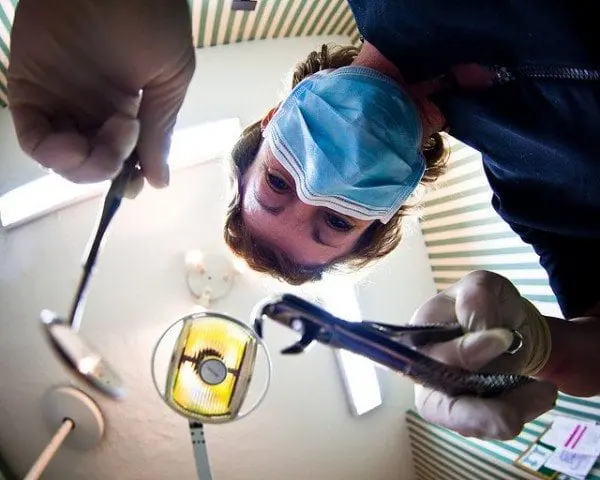Medical History and Dental Care: Why Your Dentist Needs to Know
Sharing your medical history with your dentist when seeking dental care ensures that you get the best possible care while avoiding unnecessary health complications.

One of the first requests made of new dental patients is to provide a comprehensive medical history. People are sometimes surprised by this as they may not see any obvious connection between their dental care and their general health. Others express concerns about issues of privacy or feel that disclosing personal information is intrusive or invasive. Yet there are many sound reasons why dentists, whether completing routine checkups or something like Laser Periodontics & Gum Surgery, require in-depth knowledge of a patient’s medical history before beginning any treatment.
Dentists are highly trained medical specialists, and the questions they ask, whilst perhaps unrelated to dental work, are very important. Not disclosing certain health issues can lead to complications or even potentially life-threatening medical emergencies that may have been avoided. The questions a dentist asks when taking a thorough medical history help to ensure safe and risk-free treatment. When it comes to finding a perfect dentist near you, you want one that is reputable and well-reviewed. You can start with a quick online search for “dentist in cave creek, az” (or one in your area) and find one that suits your needs. It’s important to pick the right one, as you want to make sure your dental hygiene remains in top condition.
They do everything they possibly can to make sure all their equipment is sterilized, as well as using masks and disposable gloves like the one found at unigloves to ensure there is no contamination.
DO NO HARM
Medical practitioners seek to ‘do no harm’, and the staff at dentist Brisbane take the care of their patients very seriously. To offer the best possible care, dental practitioners must be aware of any potential issues that may give rise to complications. They can then carefully implement a range of specific procedures that help ensure the patient is treated with the utmost safety.
MEDICATIONS AND DENTISTRY
An example that illustrates why disclosure makes a difference is with patients who are prescribed blood thinning medications. These medications cause blood to flow more readily and clot differently. Bleeding that continues after gum surgery or a tooth extraction could make healing more difficult or even be potentially life-threatening in some circumstances. If these medical facts are disclosed, the dentist will know how to proceed safely with the required treatment. The dentist will likely consult with the GP and together decide on the proper course of action. It may be necessary to cease taking the blood thinners shortly prior to the dental work and then resume their use after allowing adequate time for the gums and jaw to heal properly.
ALLERGIES
Awareness of allergic reactions is increasing, and certain precautions and procedures can be followed to minimize patient risk. For example, if the dentist is informed that a patient has a latex allergy they can alter their treatment to minimise the risk of adverse reactions. They may switch to using non-latex gloves and implements and ensure that emergency medications are on site to treat life-threatening anaphylaxis should a severe reaction occur.
HEART DISEASE
Dental work can be stressful, and patients with heart conditions or high blood pressure can have a higher risk of serious complications. A dentist unaware of these pre-existing conditions cannot factor this into their treatment plan. The risk of harm increases dramatically when these medical facts are withheld from the dentist. Patients who have recently suffered heart attacks are often advised to delay dental procedures until they have been in recovery for at least six months.
KNEE AND HIP REPLACEMENTS
Recipients of knee and hip replacements need to be vigilant about introducing infections into their bloodstream. These expensive and painful procedures can be compromised when exposed to infection within the first two years of receiving the replacement. Antibiotics can be administered before and during any dental procedures to minimize the risk of infection, but again, the dentist must know the facts in order to ensure best practice.
There are numerous health conditions and medications that need to be taken into consideration as they may cause unnecessary complications that can easily be avoided by sharing this information with the dentist from the outset.
CONFIDENTIALITY
Dentists are legally obligated to keep their records private, confidential, and secure. They may not discriminate based on one’s health issues nor disclose the history recorded without first consulting the patient who provided the information.
EVERYTHING IS CONNECTED
Dental practitioners are highly trained medical specialists. Although their work takes place in the mouth, the human body is a complex organism with many integrated systems. Health issues that seem unrelated to teeth can still significantly affect how the body responds to dental treatment. Dentists require a medical history in order to offer the optimum level of care and comfort. A good rule of thumb is that it is better to provide too much information rather than too little. The power to increase health and healing and avoid harmful complications lies in the information shared with the dentist. When in doubt, speak out. If you plan to fix that toothache with dentist in massapequa ny, make sure you are aware of your medical history to avoid unexpected complications.










Thanks for the very important article – I wish more folks would take the time to understand why it’s important to not hide information from those who are trying to help!
The blood thinning scenario is our biggest concern and we’re glad to see it highlighted in your article – important stuff!
Thanks again!